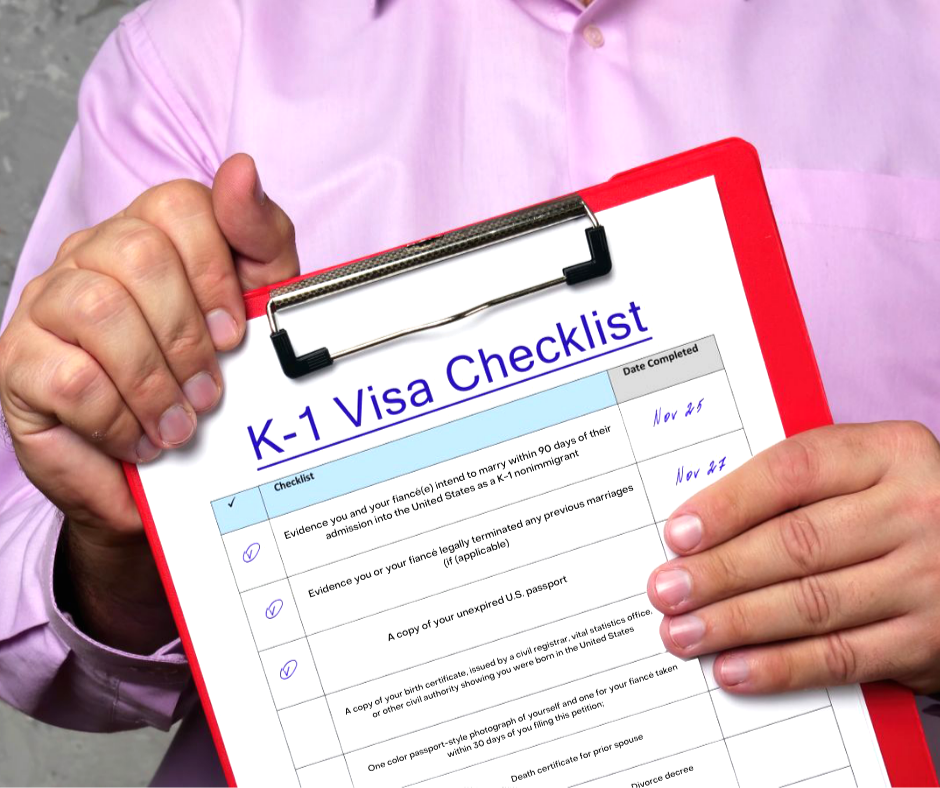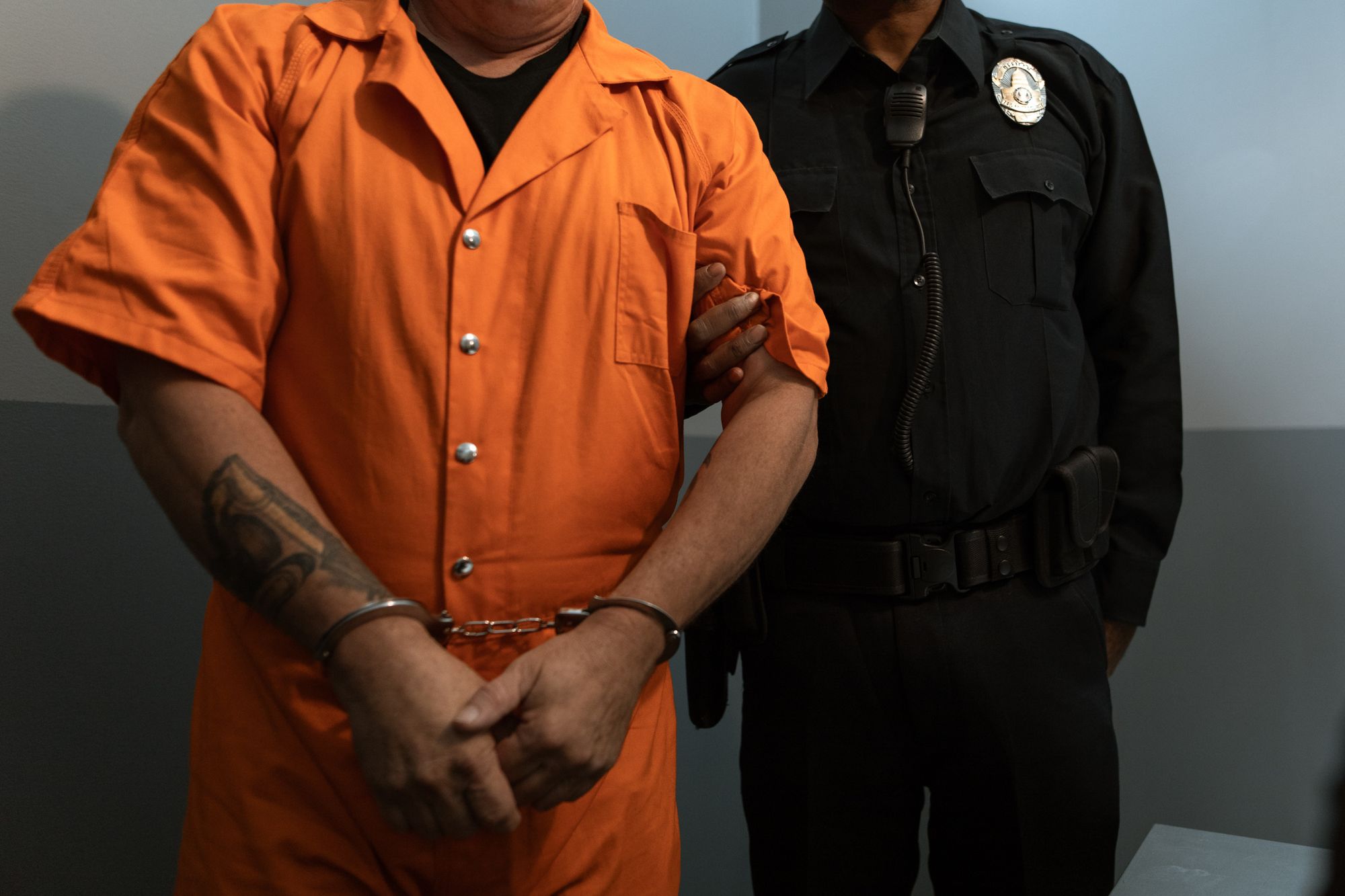9 Common Reasons a K1 Visa Could be Denied To a Filipina with a U.S. Fiancé (Plus 2 Things You Can Do if Yours Gets Denied)
The K1 visa is formally known as the K-1 Non-immigrant Visa. It is for a Filipina or any other foreign national who is the fiancée (or fiancé) of a United States citizen. The visa grants you permission to marry your U.S. sponsor within ninety days of your arrival.

They say love knows no bounds. Distance, nationality, race, age: none of this matters. The ultimate goal for couples in long-distance relationships is to be together, and to be able to get married. This can be complicated if you live in different countries and have different nationalities. For couples where one is a U.S. citizen, the solution may be found by obtaining a K1 visa.
Of the thousands of K1 visas that are applied for every year, many still get denied by the U.S. Citizen and Immigration Service (USCIS). Statistics show that approximately 20,000 K1 applications are denied annually: that’s a whopping 40%. It is important for Filipinas to know the reasons for this.
What is the K1 Visa?
The K1 visa is formally known as the K-1 Non-immigrant Visa. It is for a Filipina or any other foreign national who is the fiancée (or fiancé) of a United States citizen. The visa grants you permission to marry your U.S. sponsor within ninety days of your arrival.
After your marriage, you can then apply to the Department of Homeland Security for a change of status. This will give you permanent residency.
Common Grounds for K1 Visa Denial for Filipinas
A large number of K1 visa applicants come from the Philippines. In 2017 nearly 7,000 Filipinos were granted the K1 Visa out of the 35,000 foreign nationals who applied. Not all applications are granted, and the reasons vary from one case to another. However, there are grounds for denial that are common, and we detail them here.
1. Lack of evidence of a genuine relationship
When your assigned consular officer decides that your relationship is suspicious, your K1 visa application may get denied. Judging the genuineness of a relationship is almost arbitrary. It is assessed quite subjectively and may vary depending on who is looking at your case.
Consular officers base their judgment on your relationship on certain factors. The common indicators that may raise a red flag are:
- A large age gap (10-15 years or more).
- A very short time between meeting and engagement.
- Having different religions.
- Little to no physical time spent together.
- No common background.
- Different language or poor communication.
- Poor performance in the interviews.
If you have not met with your fiance(e) in person during the past two years, physically, there is a chance that your officer may consider your relationship suspect. It is always advisable that you keep evidence of your meetings and engagement. Use photographic evidence, online evidence, and records of calls. You also have to make sure you really know your partner, including his beliefs, his culture, and even his habits.

2. A relationship shrouded in secrecy
To prove your relationship is genuine takes more than just knowing each other well – other people should be able to attest to your relationship. When couples form a genuine relationship, they let their family and friends know that they have a partner and who that partner is. If nobody knows about your relationship, it may lead to the denial of your K1 visa application. Make sure to take photos of your family and friends with your partner at every opportunity. This will help in proving you are in a bona fide relationship.
3. A fraudulent person
Sometimes people misrepresent themselves in order to get the K1 visa. Not only does this lead to the denial of the application, there is also a chance the applicant may face criminal charges for fraud.
Examples of misrepresentation and fraud under the K1 visa application are:
- Using fake photos.
- Inconsistencies in supporting documents and testimonies.
- Falsification of income.
- Falsification of affidavits from family and friends.
- Nondisclosure of criminal and credit history.
Remember that misrepresentation and fraud are serious crimes no matter what the circumstances. Do not risk your application by engaging in these activities.
4. One or both of you are not ready to marry within 90 days
The regulations of the K1 visa state you have to marry your U.S. citizen partner within 90 days of arriving in the United States. If you cannot prove your intention to marry within the specified period, there is a high chance that your visa will get rejected.
In proving your intention to marry, you will usually have to sign a statement. You also have to provide other evidence such as:
- Wedding invitations.
- Wedding ceremony-related receipts.
- Details of your wedding planners.
5. Not eligible to marry
Linked to the previous point, if one or both of you are not legally eligible to marry when you submit your application, this will raise red flags and likely lead to a denial of your visa application.
When applying for a K1 visa, make sure you can demonstrate that you are both eligible to marry. This means that neither of you should be tied to a previous marriage or relationship. If you have a previous marriage, make sure that your marriage has been annulled by the court through a divorce (or death of spouse). Or, if your partner has been previously married, make sure their divorce or annulment has been finalized.
Remember, if you are marrying a U.S. citizen, you are subject to follow the marriage laws of the United States. This covers all marriage restrictions and regulations regarding age, polygamy, and financial status. Any violation of these laws will lead to the denial of your K1 visa application.
6. Your K1 visa sponsor fails to meet income requirements
A K1 visa application may get denied because your sponsor (fiancé) has failed to meet the income requirements for sponsorship. In applying for a K1 visa, you must prove that you will not rely on public funds for your living expenses upon arrival in the United States. This means that your U.S. citizen fiancé must have enough funds to support you and any dependent children. Failure to do so means a high chance of denial.
7. Health conditions
If you have health conditions that may be transmissible through contact, your K1 visa application will very most likely be denied. Communicable diseases such as tuberculosis will prevent your entry to the U.S. Before applying for the K1 visa, you need to ensure:
- You have no communicable or infectious disease.
- You have had all necessary vaccinations, including for COVID-19.
- You have been medically assessed.
- You have no history of drug use and abuse.

8. History of criminal activity
While it is still possible for you to obtain a K1 visa even with a history of criminal activity, it is harder than applying with a clean record. You have to provide all necessary supporting documents regarding your run-in with the law, such as:
- Fines and bails, if applicable.
- Legal actions.
- Sentences.
- Financial records pertaining to the offense.
The important thing is to convince immigration officers that you will not engage in any criminal activity in the United States. Failure to do so will only lead to the rejection of your application.
9. Otherwise ineligible
Your K1 visa application will be denied if you are ineligible to apply in the first place. Grounds for ineligibility include:
- Convictions of drug trafficking.
- Overstaying a previous visa.
- Submission of fraudulent documents.
In case of ineligibility for a K1 visa, you will be notified by the Consular Office. You will also be provided with details should a waiver for ineligibility apply to your case.
My K1 Visa Application Got Rejected. What Now?
After your interview with the Consular Officer, you have to wait for the results. You will be notified by the Consulate office by email whether your K1 visa application is approved or denied. If your application is denied, you will also be informed of the reason for the denial.
Here are some options after receiving a denial notification:
- Make an appeal
This is the common route for Filipinas who have had their K1 visa application denied. However, not all visa denials from the Philippines are eligible for appeals. You will be notified in your notice of denial whether you are eligible to appeal or not.
If you are eligible, you have thirty-three days to appeal the denial through filing Form I-290B. You also have to pay a non-refundable filing fee amounting to $675.
- Redo the whole K1 visa application process
Another route to take is to reapply for your K1 visa. Doing so means you can pay more attention to all the details, making sure you will not get denied this time. You should be aware of what went wrong during your first appeal, so the same mistakes aren't made. Be aware that the denial of your first application will still be taken into account when you reapply.
You will still have to convince your officer that you are eligible for the K1 visa.
Wrap-up
Love and marriage today shouldn’t be restricted by distance or nationality. Countries such as the United States offer visa programs like the K1 Non-immigrant Visa for your foreign national fiancée so that the both of you can be together. To have the best chance of success, you would do well to consult with an immigration expert or lawyer before you proceed with your visa application. They will know how you should present your case and what evidence you need. With a legal consult, your visa application should be smooth and relatively stress-free.
Disclaimer:
Marriage Visa Helper is not affiliated with any government agency. Marriage Visa Helper does not offer any official government forms. You can get free blank immigration forms directly from the USCIS website with detailed instructions on how to fill them. Marriage Visa Helper is not a law firm nor does Marriage Visa Helper practice law in any of the US states or any Province within the Philippines.Marriage Visa Helper and its writers do not claim any special knowledge or expertise in immigration law. Marriage Visa Helper exists solely as a supplemental source of information for users seeking more information about immigration from the Philippines to the United states. Marriage Visa Helper curates content from various sources about US to Philippines Immigration and produces content such as articles, blog posts and newsletters for its users. Marriage Visa Helper also produces content about international dating specific to the US and Philippines, as it applies to certain immigration types and we believe a related topic.

